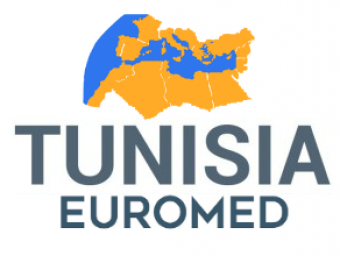On Monday, Syrian troops reportedly encircled the southwestern city of Daraa, one of the first centers of the 2011 rebellion against President Bashar al-Assad. It’s another military success for Assad’s regime, which has in recent weeks continued its steady recapture of territory once lost to rebels.
For months, the area had been subject to a “de-escalation” agreement between Russia, Jordan and the United States. But things have escalated quickly.
The regime offensive in Daraa province began last month with a blistering wave of airstrikes and a ground assault that forced more than a quarter of a million people to flee. That exodus precipitated a new humanitarian crisis: Jordan, already hosting more than 1.3 million Syrians, had previously sealed its border, and the latest refugees had nowhere to turn. Rights groups monitoring the situation suggested the civilian death toll was in the hundreds.
The crisis has subsided as the rebels have given way. Over the weekend, an interim cease-fire brokered by Moscow allowed tens of thousands of refugees in southwest Syria to return to their homes, in areas now controlled by the government. Opposition fighters have also laid down arms under the terms of such deals, which have become an oft-repeated regime tactic.
“As the regime celebrates, Jordan breathes a sigh of relief, patting itself on the back for dodging another refugee crisis while providing a token amount of relief within the border zone,” the Atlantic’s Alice Su reported from Jordan. “Daraa’s civilians are now left to take stock of the hell they’ve only barely survived, and ponder the unknown fate that awaits those who will now return to government or Russian rule.”
From Moscow’s perspective, things are going mostly according to plan. Russia’s intervention in Syria in September 2015 turned the tide of battle. Backed by Russian air power, the Syrian regime has been able to topple rebel strongholds and assert control over all of the country’s major cities. The rest of the world’s zeal to oust Assad has faded, with a grudging acceptance of the Russian-authored status quo taking hold in Western capitals.
American critics, including former president Barack Obama, once suggested that Syria would prove a quagmire for Russia, which would succumb to the mission creep that has plagued U.S. involvement in the Middle East. But if Russian President Vladimir Putin has not quite followed through on multiple promises to withdraw, the relatively small death toll suffered by official Russian forces has left public opinion largely on his side. With President Trump keen to wipe his hands of the mess in Syria, the Russians can wait out Washington.
Boosters of the Russian intervention, moreover, shrug off accusations that Moscow has enabled a campaign of violence against rebel-held areas, including the Syrian regime’s use of chemical weapons. “The Western press makes accusations without any proof — these are political accusations, and they are not objective,” said Qadri Jamil, a former deputy prime minister in Assad’s government who is now based in Moscow and leads a nominal Syrian “opposition” group recognized by the Kremlin.
Jamil, speaking to Today’s WorldView, argued that Moscow’s decisive move into Syria is helping bring to an end a ruinous war. “I think that if it had not been for the operation of the Russian army, the number of casualties would’ve been much higher,” he said. “The number of victims now is about hundreds of thousands of people. I think that without Russia the number could’ve reached millions by now.” (Current estimates place the Syrian death toll at about 400,000 people.)
Other commentators see Moscow’s gambit, born of opportunism and executed ruthlessly, as a masterstroke. “The Russians are now demonstrating Machiavellian skills that are defining what success looks like on the battlefield,” wrote Kamal Alam, a visiting fellow at the Royal United Services Institute, a London think tank. “For the first time in modern history, a foreign military intervention has triumphed in the Middle East.”
The question of what happens next in Syria will loom over Putin’s planned meeting with Trump next week in Helsinki. Trump administration officials have long sought to drive a wedge between Assad’s two main backers, Russia and Iran. The latter’s entrenched position in Syria is reviled by both Washington and Israel. But while there’s plenty that separates Moscow and Tehran, a split between the two is not in the cards.
“The Russians can’t guarantee an absence of Iran in Syria,” explained Maxim Suchkov, a Moscow-based expert on Russian foreign policy in the Middle East.
He added that Russia may not want to risk its cooperation with Iran on other fronts. “Their ties are not only about Syria,” Suchkov told Today’s WorldView. “Iran is an important partner with Russia in Afghanistan, Central Asia and the Caspian, and they have a similar vision in the Middle East in terms of fighting Salafism,” referring to the brand of Sunni extremism inflaming the Islamic State and other jihadist groups.
In small ways, though, there are signs of productive diplomacy. The offensive on Daraa was preceded by an apparent agreement between Russia and Israel that calmed Israeli fears about Iranian-linked forces appearing along their border. The West then acquiesced to the regime’s onslaught in southwest Syria despite its humanitarian toll. Russian military police are also set to patrol Syria’s south in a supposed bid to ensure that the regime exacts no retribution on civilians who once lived among the rebels.
But it’s a fragile peace that may not last. “There should be no illusions that the implementation of a buffer zone can be guaranteed,” regional expert Michael Sharnoff wrote for The Washington Post. “Syria’s leadership will do what suits it, not what the United States — or Russia — demands.”
And ultimately, argued Suchkov, Putin values his ability to “create the image” of a successful actor in the Middle East, especially in contrast to the United States.
“For the United States, Syria is more about Iran,” he said. “For Russia, Syria is about the United States.”
Natalia Abbakumova contributed to this report.
